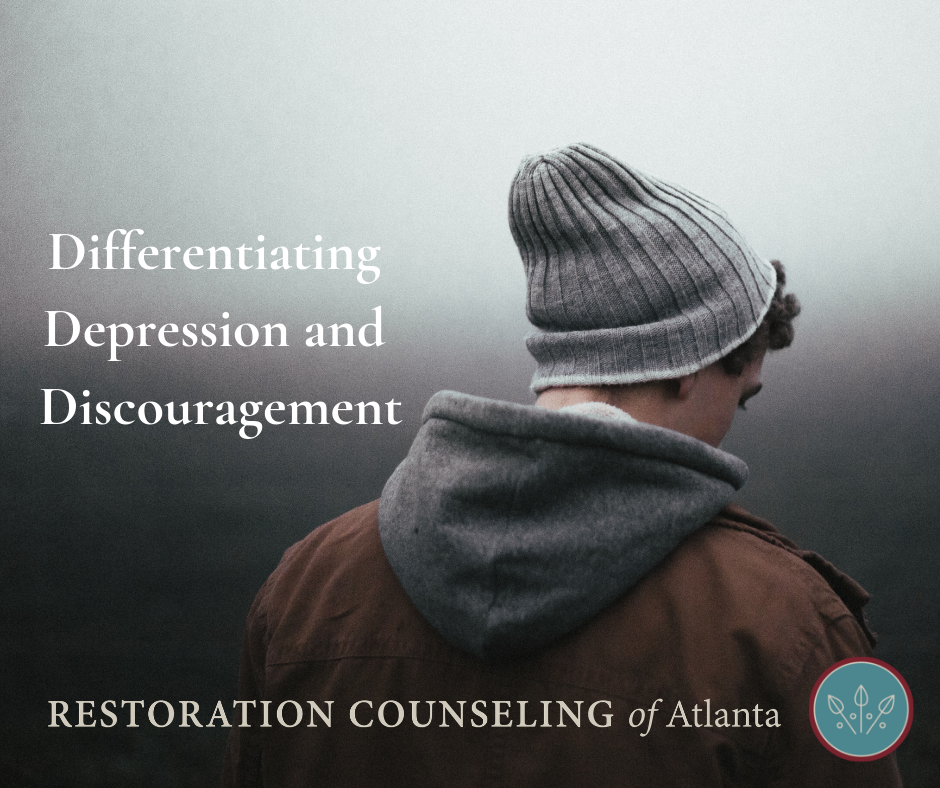Being able to tell if your son or daughter has depression can be a real challenge. From the outside, both depression and discouragement look very similar. Depression and discouragement both show up in things like change in appetite, seclusion/isolation, and/or a dark cloud that seems like it won’t go away. To make things worse, your son or daughter who is struggling likely cannot tell the difference between depression and discouragement either.
Here are a few quick tips that can help you help your child:
- Biology: Do a quick family scan of medically diagnosed depression. Do you or your spouse have a sibling, parent, or extended family member who has a diagnosis of Major Depressive Disorder or Bipolar Disorder? This raises the likelihood but doesn’t guarantee that your child may have depression.
- History: Has your son or daughter been through something like this before? Are they acting in accordance with historical patterns? Is this type of behavior somewhat new and unseen or at least not seen to this degree? The more your son or daughter’s behavior deviates from what you’ve seen of them, the more likely it is to be depression.
- Behavior: Connecting to history, is your son or daughter’s behavior irregular? For example, if they used to play video games when they were sad, are they still playing games, or are they spending notably less time than usual playing games? If they are pulling away from things they enjoy, this is a clear sign of depression.
Track Your Child’s Mood and Feelings
Equip your child with the appropriate tracking tools. This can be a simple yet incredibly effective activity that will serve them for the rest of their lives. Start by having your son/daughter track their feelings over a month-long period. This can be done with a daily mood journal, using social media as a tracker, or something more fun like a daily video journal. If they are not into these activities, ask them if you can verbally track it for them. This would look like asking your son/daughter to rate their day on a scale of 1-10. Afterward, you can record this somewhere so you have a record.
Help Your Child Identify and Change Language That Doesn’t Fit
Also, consider building your son/daughter’s language in a way that brings personal clarity to them. For example, suicidal/self-harm language has gotten into the lexicon of teenagers and is used to communicate a wide spectrum of feelings. This can include everything from very mild frustrations to an actual hating of their own life that accompanies a desire to take their own life – and everything in between. Every time suicidal/self-harm language pops up, have a conversation about it. Allow your son/daughter to give a further explanation of what they are actually feeling, the frequency of these feelings, and if the feeling is appropriate for the experience. Give them new ways to express their feelings if they are short term and temporary. On top of this, encourage your son/daughter to add in something that they are thankful for during these frustrating experiences.
Talk to Your Son/Daughter’s Friends
Finally, one of the best ways to distinguish between depression and discouragement is talking with your son/daughter’s friends. As a parent, you will find that your relationship with your son/daughter is different than it used to be, and often teens have a certain distance from their parents. This is normal and even healthy. In place of their parents, teens usually use friends as a soundboard of thoughts and opinions that parents can rarely be privy to. Provided that you have a reasonable relationship with your child’s friends, reaching out to them privately is generally a solid decision. This can be done in personal conversation or private messaging via some sort of social media platform. Let the friend know your concerns and ask for their feedback and if what you are hearing is what they are hearing. If the friend brings back equal concern, it is much more likely that your son/daughter is dealing with depression.
Action Steps:
If you suspect that your child may be dealing with depression and are unsure about what to do, start by talking to your son or daughter’s pediatrician. Let the physician know any relevant history. See if your son or daughter wants to talk to their pediatrician about how they are feeling. If talking helps, connect them with a counselor that they feel comfortable with and want to talk to. Even if you don’t think your child has depression and is just discouraged, talking to a counselor can still be extremely helpful. Medication may or may not be a good option for your child, and both your child’s pediatrician and counselor should be collaborating with you in that decision.
by Jared Pogue, LPC

